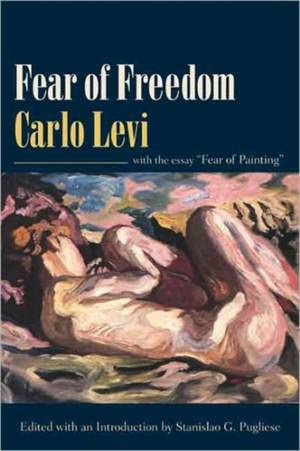
- Afhalen na 1 uur in een winkel met voorraad
- Gratis thuislevering in België vanaf € 30
- Ruim aanbod met 7 miljoen producten
- Afhalen na 1 uur in een winkel met voorraad
- Gratis thuislevering in België vanaf € 30
- Ruim aanbod met 7 miljoen producten
Zoeken
€ 144,45
+ 288 punten
Uitvoering
Omschrijving
Carlo Levi was a painter, writer, and antifascist Italian from a Jewish family, and his political activism forced him into exile for most of the Second World War. While in exile, he wrote Christ Stopped at Eboli, a memoir, and Fear of Freedom, a philosophical meditation on humanity's flight from moral and spiritual autonomy and our resulting loss of self and creativity. Brooding on what surely appeared to be the decline, if not the fall of Europe, Levi locates the human abdication of responsibility in organized religion and its ability to turn the sacred into the sacrificial. In doing so, he references the entire intellectual and cultural estate of Western civilization, from the Bible and Greek mythology to Sigmund Freud and Carl Jung. This edition features newly published pieces of Levi's artwork and the first English translation of his essay "Fear of Painting," which was appended to a later publication of the work. It also includes an introduction that discusses Levi's life and enduring legacy. Written as war clouds were gathering over Europe, Fear of Freedom not only addresses a specific moment in history and a universal, timeless condition, but it is also a powerful indictment of our contemporary moral and political failures.
Specificaties
Betrokkenen
- Auteur(s):
- Vertaler(s):
- Uitgeverij:
Inhoud
- Aantal bladzijden:
- 176
- Taal:
- Engels
Eigenschappen
- Productcode (EAN):
- 9780231139960
- Verschijningsdatum:
- 2/04/2008
- Uitvoering:
- Hardcover
- Formaat:
- Genaaid
- Afmetingen:
- 140 mm x 216 mm
- Gewicht:
- 344 g

Alleen bij Standaard Boekhandel
+ 288 punten op je klantenkaart van Standaard Boekhandel
Beoordelingen
We publiceren alleen reviews die voldoen aan de voorwaarden voor reviews. Bekijk onze voorwaarden voor reviews.











